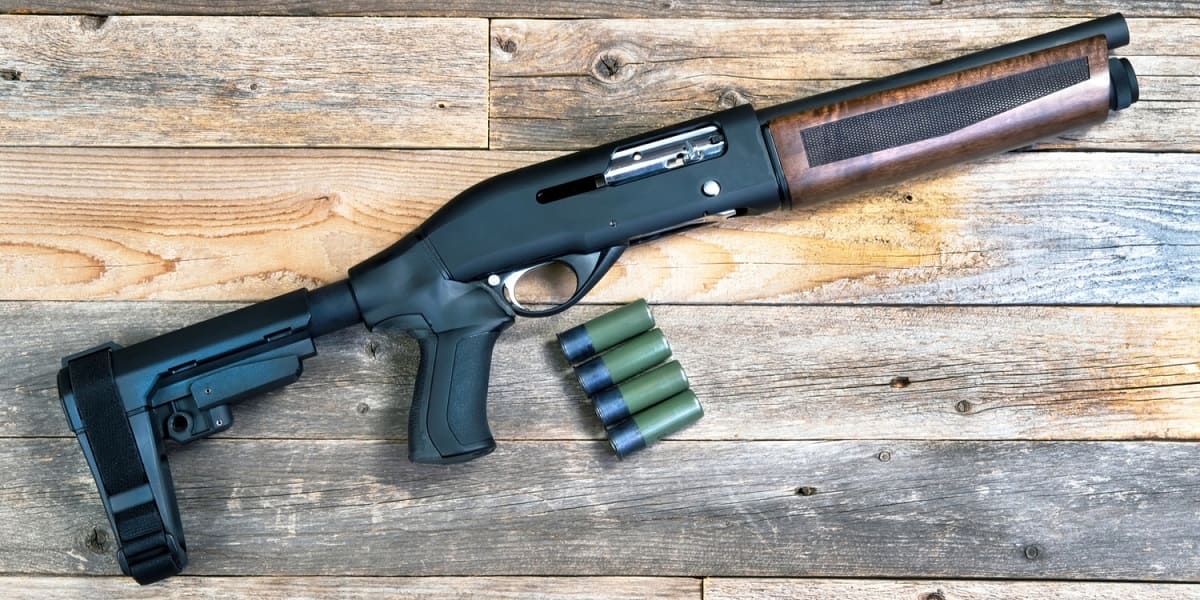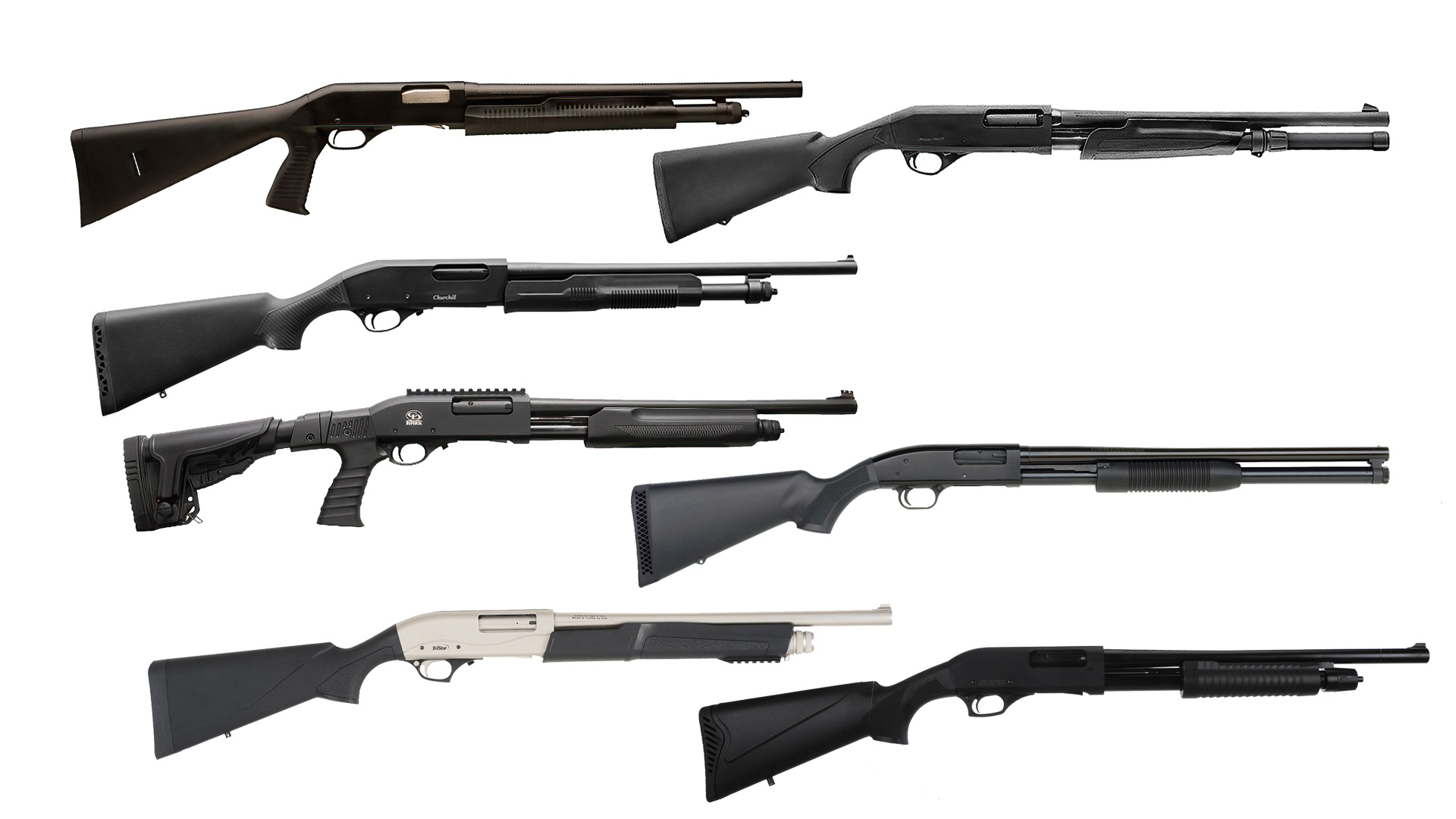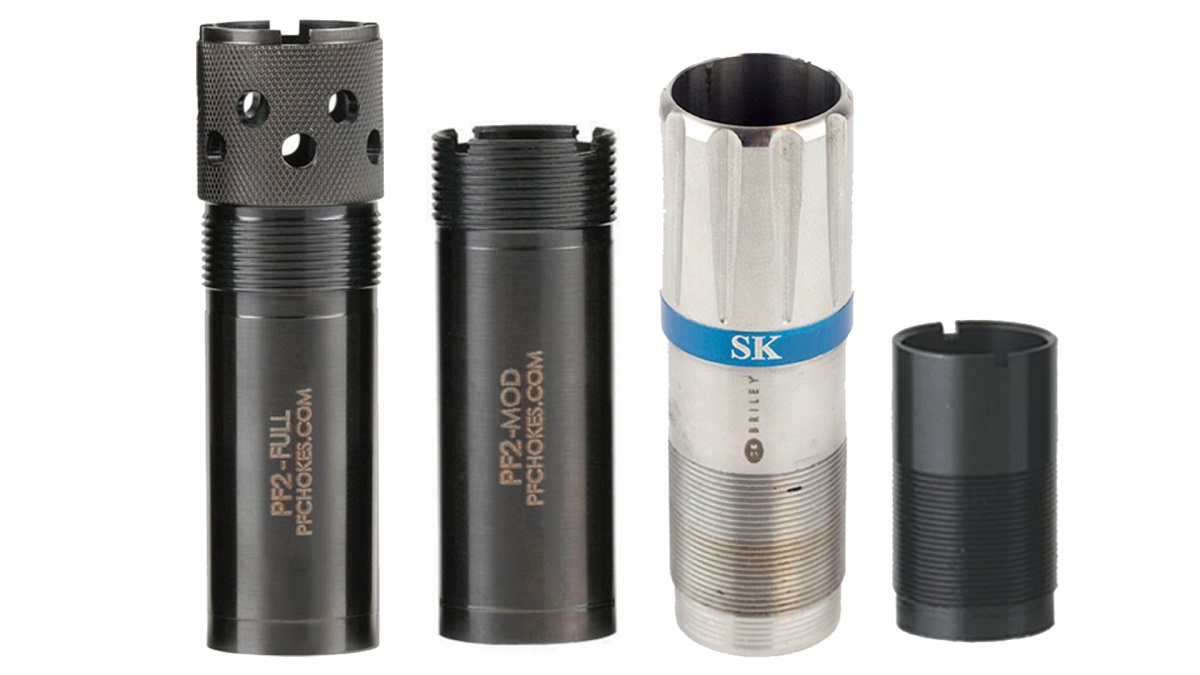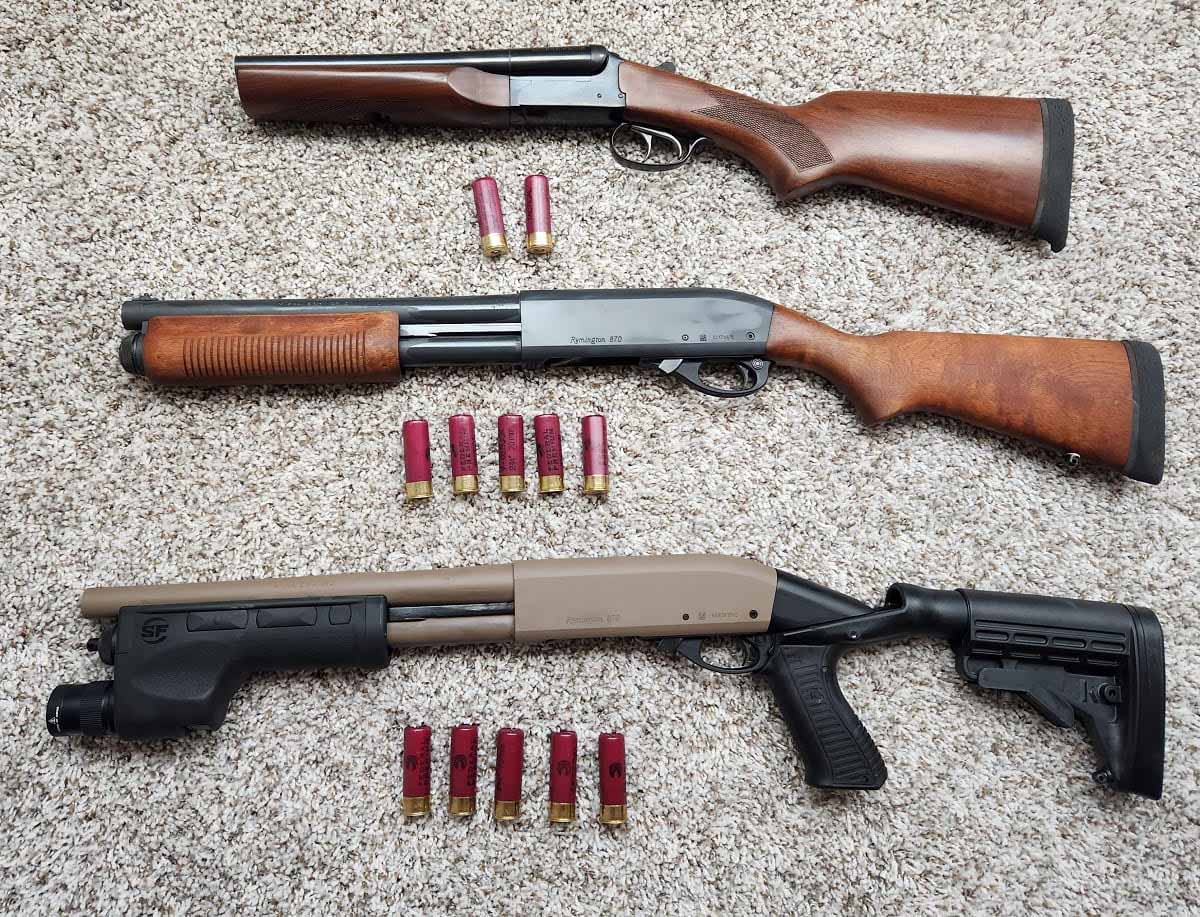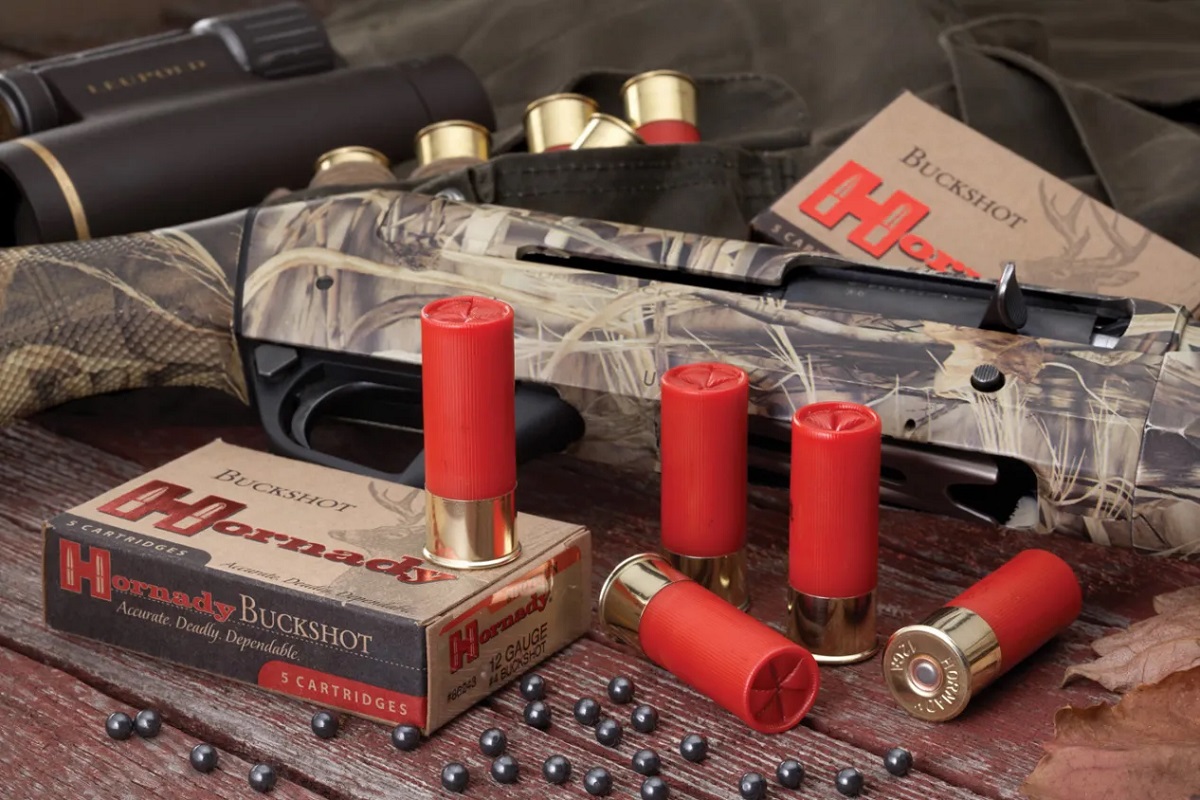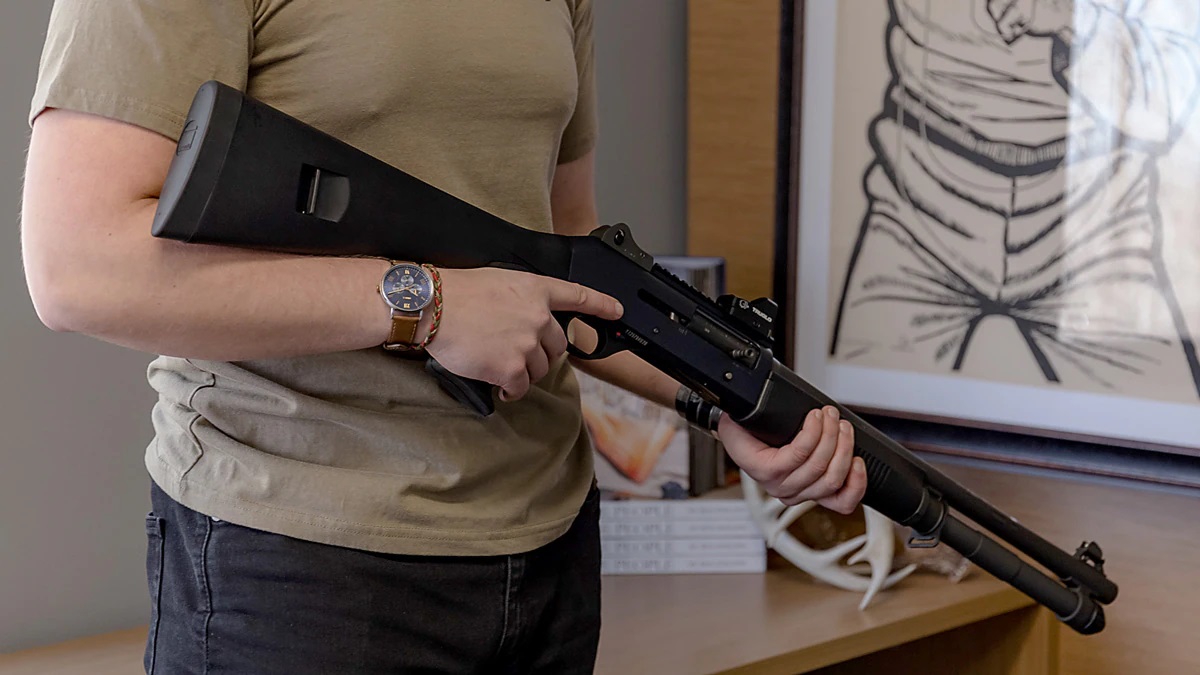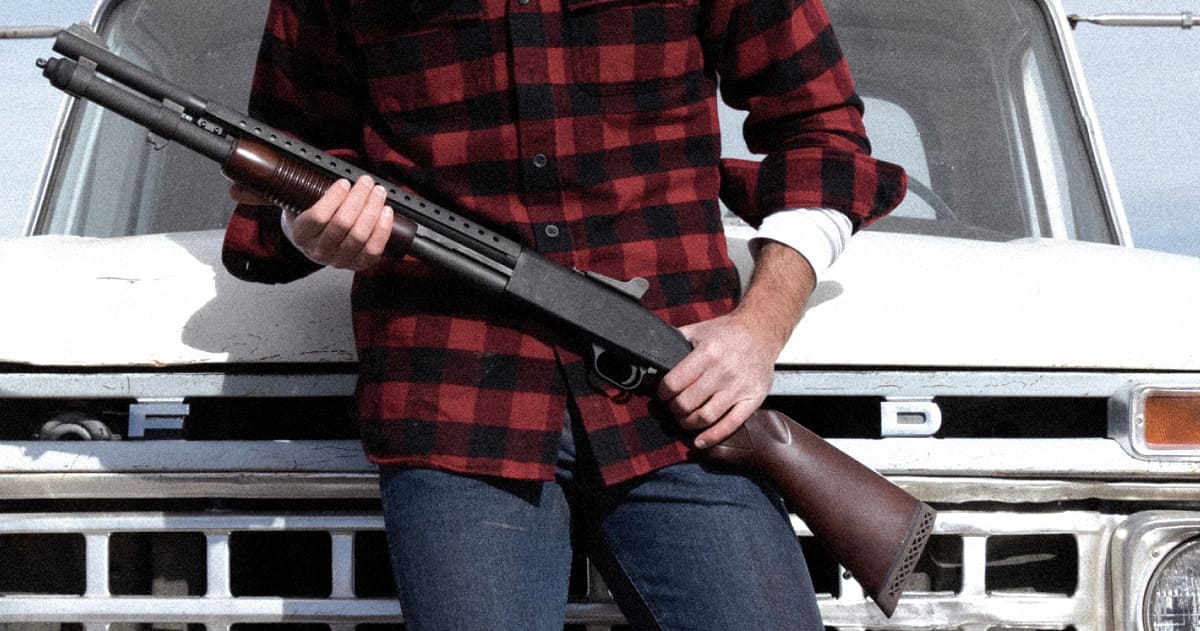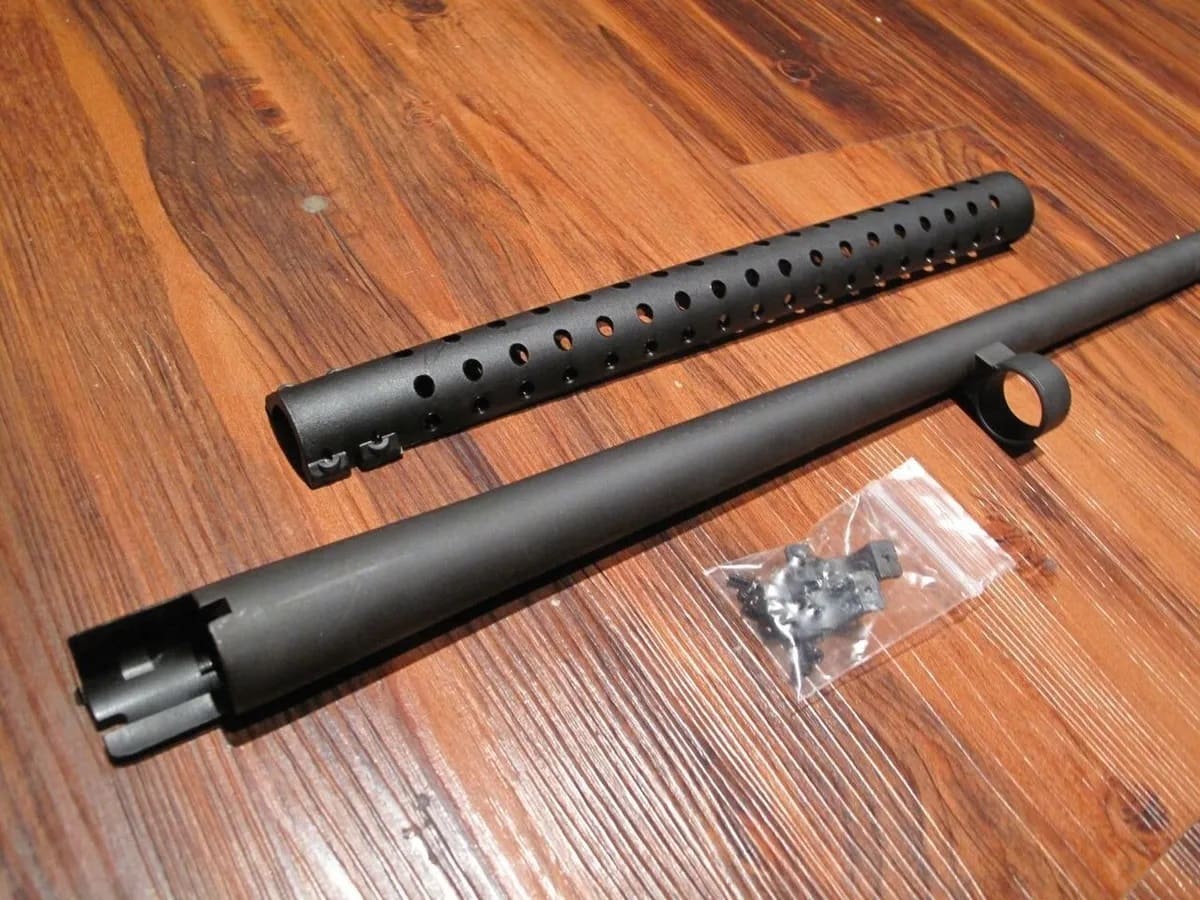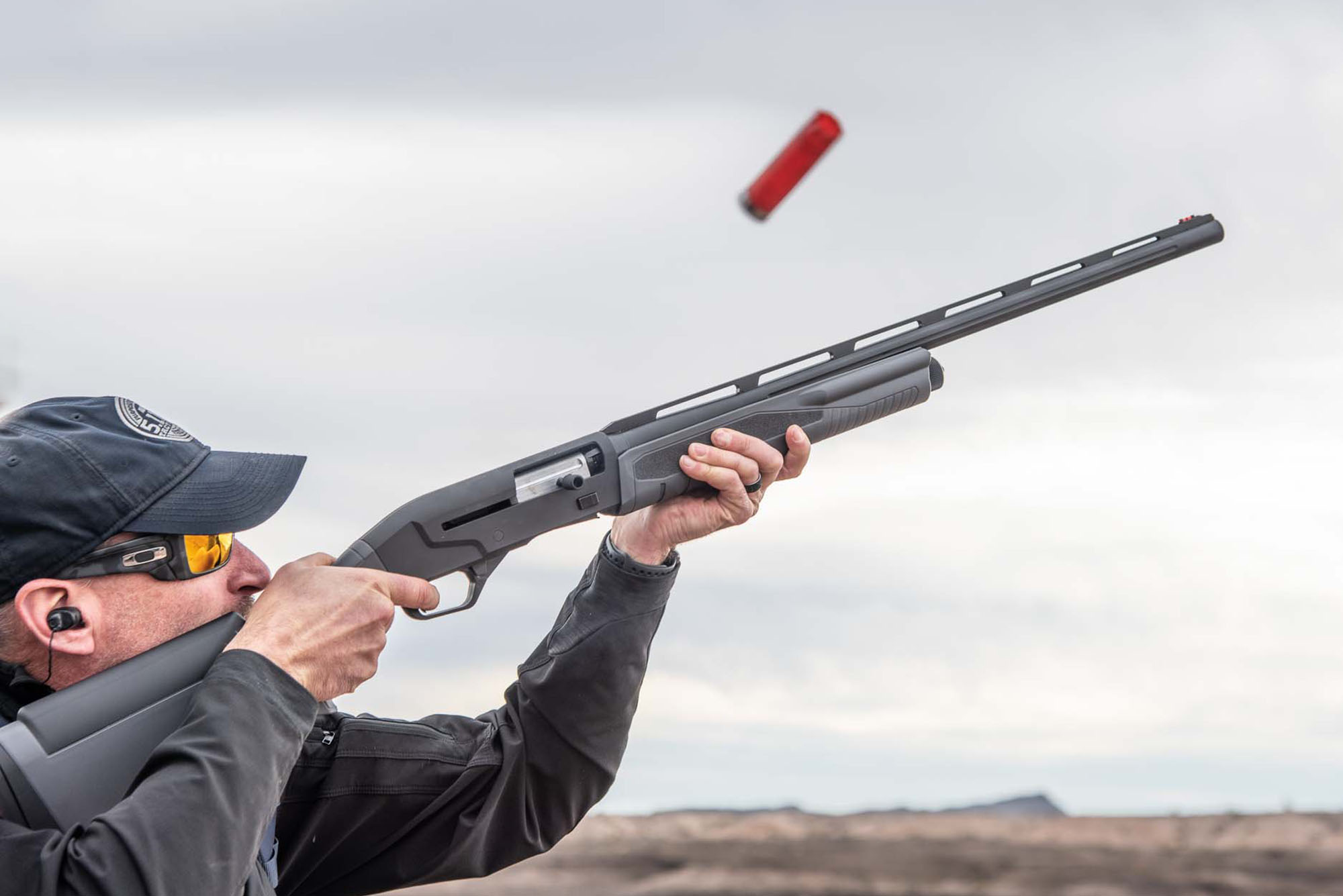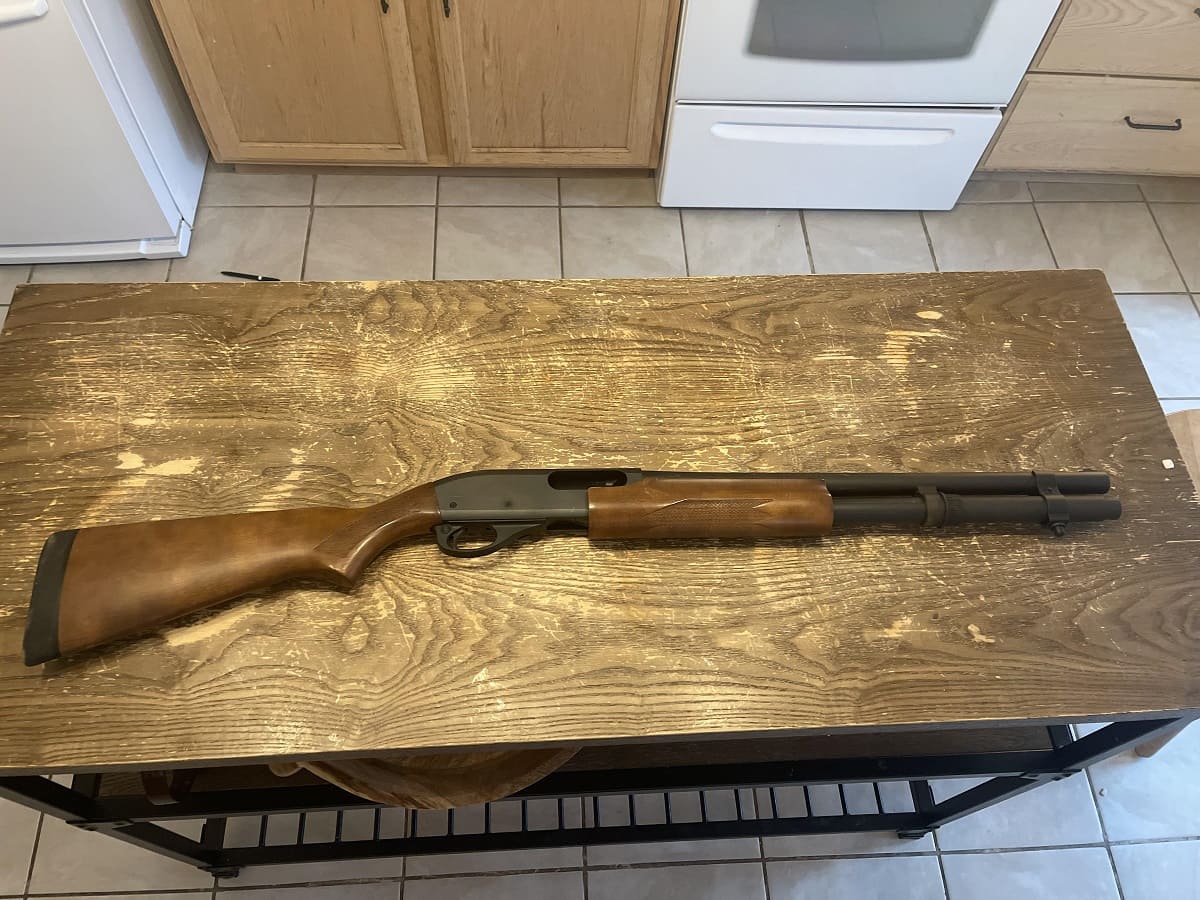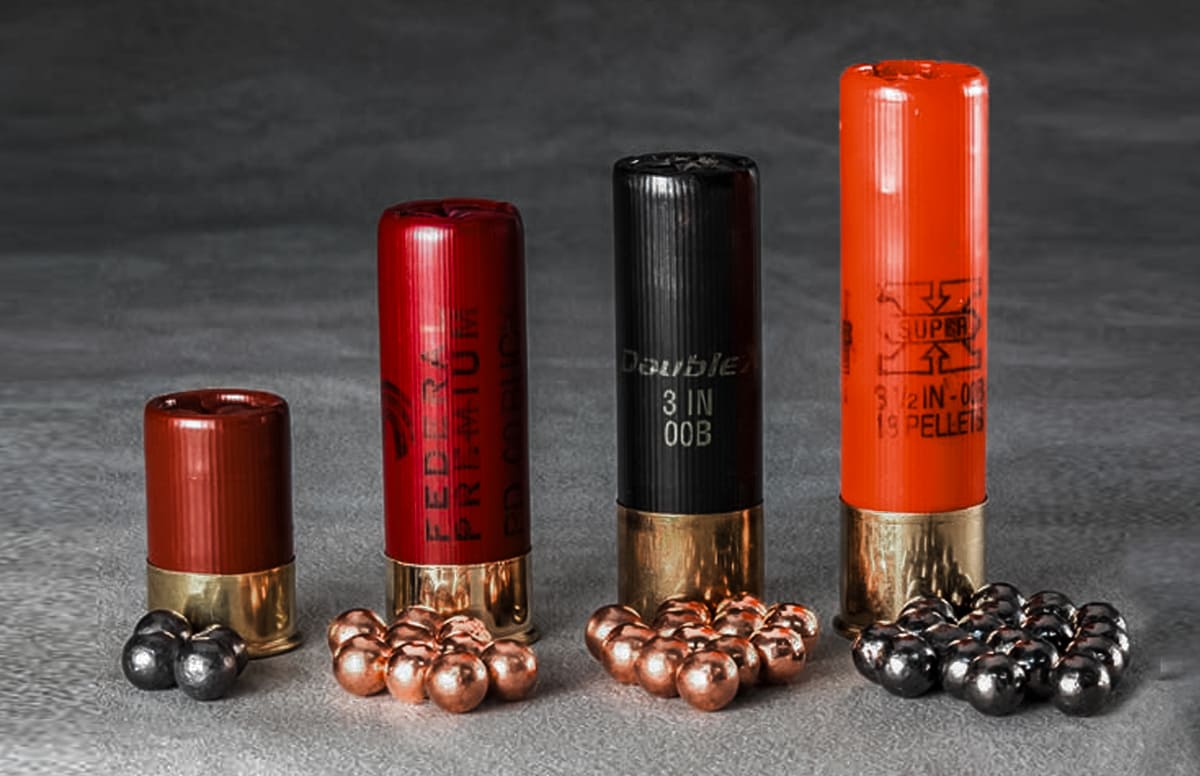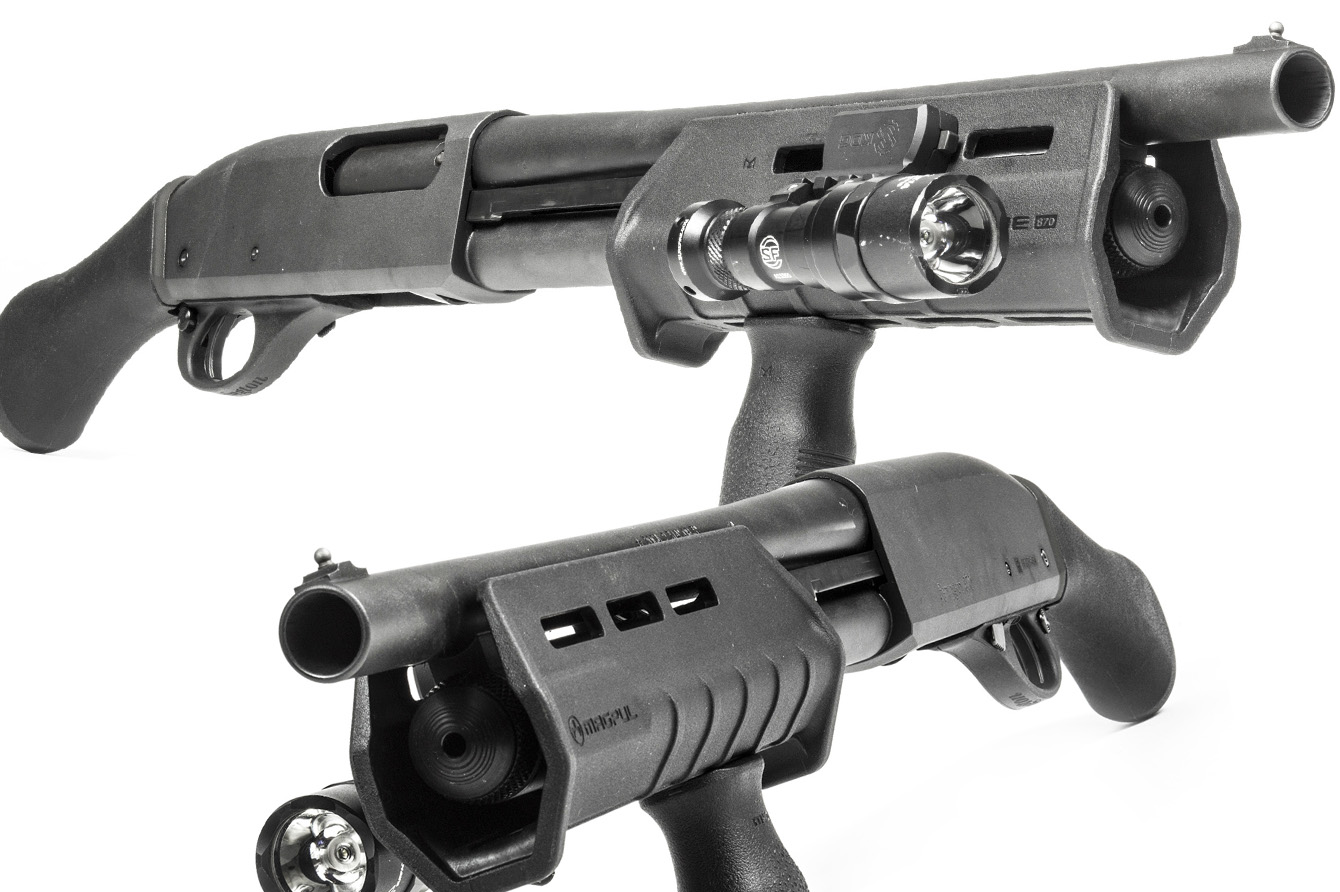Home>Home Security and Surveillance>What Size Barrel Is Suitable For Shotgun Home Defense
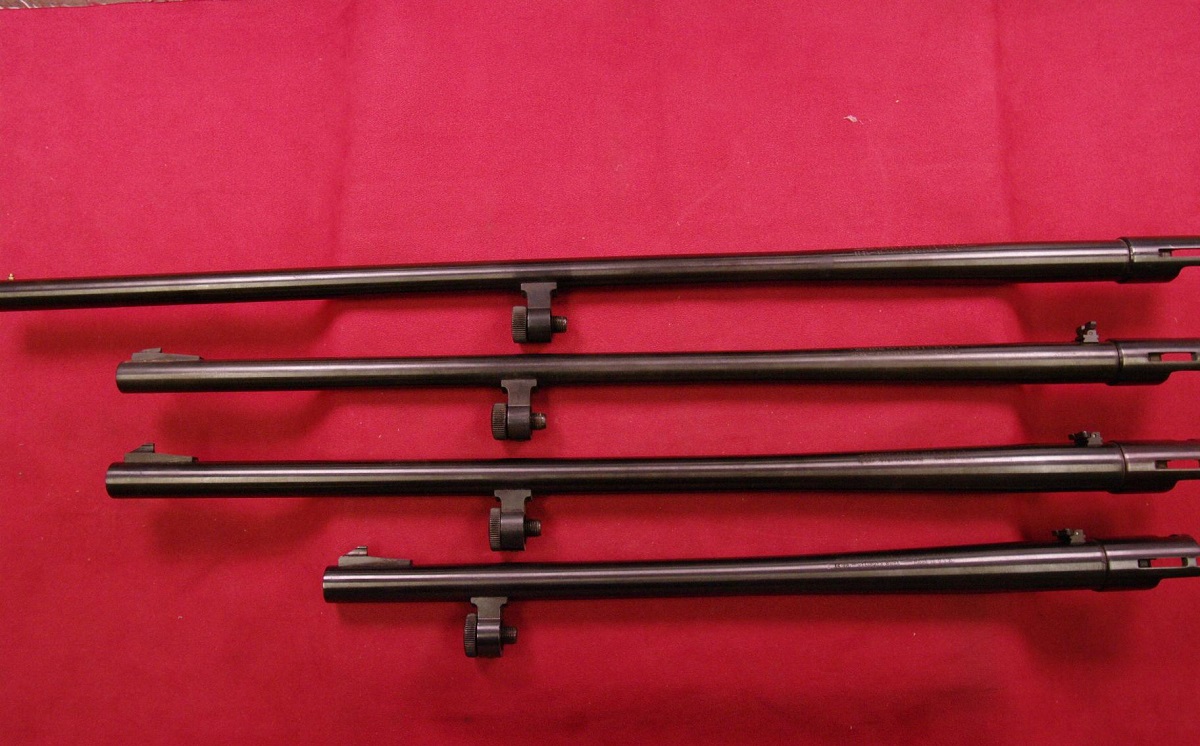

Home Security and Surveillance
What Size Barrel Is Suitable For Shotgun Home Defense
Modified: March 6, 2024
Find out what size barrel is ideal for shotgun home defense. Learn how to choose the right barrel for your home security and surveillance needs.
(Many of the links in this article redirect to a specific reviewed product. Your purchase of these products through affiliate links helps to generate commission for Storables.com, at no extra cost. Learn more)
Introduction
When it comes to home security and surveillance, one of the most effective tools is a shotgun. Its versatility, power, and ease of use make it a popular choice for many homeowners. However, one significant aspect to consider when selecting a shotgun for home defense is the size of the barrel.
The barrel of a shotgun plays a crucial role in determining factors such as accuracy, range, and maneuverability. Understanding the different options available and their impact on home defense can help you make an informed decision when choosing a shotgun for your protection.
In this article, we will explore the various factors to consider when selecting a shotgun barrel for home defense. From the length of the barrel to the gauge, choke selection, and even the material used, each of these elements will have an impact on your shotgun’s performance in a home defense scenario.
Key Takeaways:
- Choose a 12-gauge shotgun with a 18-20 inch barrel and a cylinder or improved cylinder choke for effective home defense. Practice regularly to familiarize yourself with your firearm and optimize your skills.
- Consider your home’s layout and potential scenarios when choosing a shotgun barrel for home defense. Shorter barrels offer maneuverability, while longer barrels provide accuracy and range. Regular training is essential for proficiency.
Factors to Consider when Choosing a Shotgun Barrel for Home Defense
Choosing the right shotgun barrel for home defense involves considering several key factors. Let’s take a closer look at each of these factors:
- Length of Barrel: The length of the barrel is an important consideration for home defense. A shorter barrel, typically around 18 to 20 inches, offers increased maneuverability in tight spaces such as hallways or staircases. It allows for easier handling and quick target acquisition. Longer barrels, on the other hand, provide better accuracy and range but may be more challenging to handle in close quarters.
- Gauge of Shotgun: The gauge of a shotgun refers to the inner diameter of the barrel. The most common gauges for home defense shotguns are 12, 20, and 410. A 12-gauge shotgun is the most popular choice for home defense due to its power and versatility. It offers a wide array of ammunition options and has excellent stopping power. However, 20-gauge shotguns are also a viable option for those seeking a lighter recoil and easier handling. The 410 gauge, while less common, can be suitable for small-framed individuals or those who are sensitive to recoil.
- Choke Selection: The choke of a shotgun barrel refers to the constriction at the muzzle that determines the spread of the shot pattern. For home defense, it is recommended to select a cylinder or improved cylinder choke. These chokes provide a wider shot pattern, increasing the chances of hitting the target, especially at close range. Avoid using chokes that create a tighter pattern, such as full or modified chokes, as they may limit the effectiveness in a home defense scenario.
- Barrel Material: The material of the shotgun barrel can impact its durability, weight, and overall performance. The most common materials used are steel, stainless steel, and carbon-fiber. Steel barrels are durable and resistant to corrosion, making them a reliable choice for home defense shotguns. Stainless steel offers enhanced corrosion resistance, while carbon-fiber barrels provide a lightweight option without compromising strength.
Considering these factors is crucial to ensure you select a shotgun barrel that aligns with your specific home defense needs. Understanding the impact of barrel length, gauge, choke selection, and material will help you make an informed decision that meets your requirements for both maneuverability and effectiveness in a potential home defense situation.
Length of Barrel and Its Impact on Home Defense
The length of the shotgun barrel has a significant impact on its performance in a home defense situation. Let’s explore how different barrel lengths can affect your ability to effectively protect your home:
Shorter Barrels: Shotguns with shorter barrels, typically around 18 to 20 inches, are often favored for home defense due to their increased maneuverability. In close quarters, such as hallways or staircases, a shorter barrel allows for easy handling and quick target acquisition. It enables you to navigate tight spaces more effectively, ensuring that you can react swiftly in a home invasion scenario.
Furthermore, the shorter barrel can also be beneficial when it comes to ease of storage. If you need to keep your shotgun in a small confined space, such as a gun safe or a hidden compartment, a shorter barrel makes it easier to maneuver and access the firearm quickly when needed.
Longer Barrels: While shorter barrels offer better maneuverability, longer barrels have their advantages as well. A shotgun with a longer barrel, typically 24 inches or more, provides increased accuracy and range. This can be beneficial in larger properties or situations where targets are at a distance.
Longer barrels allow for a longer sight picture, which makes it easier to aim accurately and take precise shots. The added length also helps to minimize the effect of recoil, making it easier to control the firearm during rapid follow-up shots.
It’s important to note, however, that longer barrels may be more challenging to handle in confined spaces. If your home has narrow hallways or tight corners, the length of the barrel can become a disadvantage as it may hinder your ability to swiftly maneuver and engage targets at close range.
Ultimately, when choosing the length of the shotgun barrel for home defense, it’s crucial to consider the layout of your home and the potential scenarios you might face. If you anticipate close-quarters engagement, a shorter barrel may be more suitable. On the other hand, if you have more open spaces or require longer-range capabilities, a longer barrel might be a better choice.
It’s worth noting that regardless of barrel length, regular training and practice are essential to develop proficiency and familiarity with your chosen firearm. This will enhance your ability to effectively use your shotgun in a home defense situation, regardless of the barrel length you opt for.
Gauge of Shotgun and Its Relevance to Home Defense
The gauge of a shotgun refers to the inner diameter of its barrel, and it plays a crucial role in determining its suitability for home defense. Let’s explore the different shotgun gauges and their relevance to protecting your home:
12-Gauge: The 12-gauge shotgun is the most popular and widely used gauge for home defense. It offers substantial power, effective stopping power, and a wide range of ammunition options. The larger diameter of the barrel allows for more pellets in each shot, increasing the likelihood of hitting the target. The recoil of a 12-gauge shotgun can be more substantial compared to smaller gauges, but with proper technique and practice, it can be easily managed. The availability of accessories and aftermarket upgrades for 12-gauge shotguns also makes it a versatile choice for customization to suit individual preferences.
20-Gauge: The 20-gauge shotgun is a suitable alternative to the 12-gauge for home defense. It offers reduced recoil compared to the 12-gauge, making it more manageable for shooters who are sensitive to recoil or those with smaller frames. While the 20-gauge shotgun may have a narrower shot pattern and slightly less stopping power than the 12-gauge, it is still an effective option for home defense scenarios. It is worth noting that the 20-gauge shotgun may have a reduced capacity in terms of ammunition selection compared to the more prevalent 12-gauge.
.410 Bore: The .410 bore shotgun, often referred to as the “.410 shotgun,” is the smallest and least powerful option commonly used for home defense. It is particularly suitable for those who have limited experience with firearms or individuals who may struggle with the recoil of larger gauges. The .410 shotgun typically has a lighter weight and may be easier to handle for those who have physical limitations. However, it is important to note that the .410 shotgun has the fewest pellets in a shot, resulting in a narrower shot pattern and reduced stopping power. As a result, it may not offer the same level of effectiveness as the 12-gauge or 20-gauge shotguns for home defense purposes.
Ultimately, the choice of gauge for your shotgun in home defense depends on various factors. These include personal comfort, recoil management, familiarity with the firearm, and individual needs and preferences. It is important to consider the potential risks you may face and choose a gauge that allows you to make accurate and effective shots while maintaining control of the firearm.
Regardless of the gauge you choose, it is essential to undergo proper training, practice regularly, and familiarize yourself with the specific characteristics and handling of your selected shotgun. This will ensure that you are prepared to confidently use your firearm for home defense purposes.
A 18-20 inch barrel is suitable for shotgun home defense as it allows for better maneuverability in tight spaces while still providing effective range and stopping power.
Choke selection and Its Importance for Home Defense
When it comes to selecting a shotgun for home defense, choosing the right choke is an important consideration. The choke of a shotgun barrel refers to the constriction at the muzzle that controls the spread of the shot pattern. Let’s explore the significance of choke selection and its impact on home defense:
Cylinder or Improved Cylinder Choke: For home defense purposes, it is generally recommended to use a cylinder or improved cylinder choke. These chokes provide a wider shot pattern, increasing the chances of hitting the target, especially at close range encounters. The wide shot pattern ensures that even if your aim is slightly off, you have a greater chance of effectively engaging the threat.
Using a choke with a wider shot pattern is advantageous in home defense scenarios because it allows for a larger margin of error in aiming. In high-stress situations, your accuracy may be affected, and having a wider shot spread compensates for any potential deficiencies in precision.
Additionally, the wider shot pattern reduces the risk of over-penetration. Over-penetration occurs when the shot passes through the target and continues traveling, potentially endangering others in the vicinity or damaging property. A wider shot pattern decreases the likelihood of this occurring, minimizing the risk of collateral damage.
Avoid Tighter Chokes: While tighter chokes, such as modified or full chokes, are commonly used for long-range shooting or specific hunting purposes, they are generally not suitable for home defense situations. Tighter chokes create a narrower shot pattern, making it more challenging to hit targets in close quarters. The effectiveness of a tight choke is more suited for precision shooting at longer distances and may hinder your ability to engage multiple targets quickly and effectively in a home invasion scenario.
In summary, selecting the appropriate choke for your home defense shotgun is essential. Opting for a cylinder or improved cylinder choke will provide a wider shot pattern, increasing your chances of hitting the target and minimizing the risks associated with over-penetration. It is prudent to avoid tighter chokes that can hinder your ability to engage threats effectively in close quarters.
Remember, regular practice and familiarization with your chosen shotgun and its choke selection are crucial to ensure that you can confidently and accurately defend yourself and your home in a high-stress situation. Consider seeking professional instruction and engaging in regular training exercises to maximize your proficiency and readiness in utilizing your shotgun for home defense purposes.
Read more: What To Put On Home Defense Shotgun
Barrel Material and Its Significance for Home Defense
When selecting a shotgun for home defense, the material of the barrel is an important consideration. The barrel material can impact factors such as durability, weight, and overall performance. Let’s explore the significance of barrel material and its relevance to home defense:
Steel Barrels: Steel barrels are a popular choice for shotguns due to their durability and resistance to corrosion. Steel is a robust material that can withstand the rigors of regular use and harsh environmental conditions. This makes it a reliable option for home defense shotguns that may be subjected to various weather conditions or stored for extended periods.
Additionally, steel barrels tend to have a longer lifespan compared to barrels made from other materials. They are less likely to show signs of wear and tear or develop structural issues, ensuring the longevity and reliability of your home defense firearm.
Stainless Steel Barrels: Stainless steel barrels offer enhanced corrosion resistance compared to regular steel barrels. The addition of chromium in the alloy composition of stainless steel provides a higher level of protection against rust and corrosion. This can be particularly advantageous if you live in a coastal area or in a region with high humidity. The increased resistance to corrosion ensures that your shotgun remains functional and reliable over an extended period without succumbing to the detrimental effects of moisture.
Carbon-Fiber Barrels: Carbon-fiber barrels are a relatively newer option in the shotgun barrel market. They offer several advantages for home defense purposes. One of the key benefits of carbon-fiber barrels is their lightweight construction. They can significantly reduce the overall weight of the shotgun, making it easier to handle and maneuver, especially during prolonged home defense situations or while clearing rooms.
In addition to their lightweight nature, carbon-fiber barrels also exhibit excellent strength and rigidity. They can absorb recoil effectively, minimizing muzzle rise and allowing for faster follow-up shots. The inherent rigidity of carbon-fiber barrels also contributes to improved accuracy, resulting in more precise shot placement during high-stress encounters.
When considering barrel material for home defense shotguns, it’s essential to evaluate your specific needs and preferences. Steel barrels offer durability and reliability, while stainless steel provides enhanced corrosion resistance. Carbon-fiber barrels, on the other hand, offer lighter weight and increased maneuverability. Understanding these attributes can help you make an informed decision based on your personal requirements.
Ultimately, regardless of the barrel material you choose, regular maintenance and care are vital to ensure the optimal performance and longevity of your shotgun. Proper cleaning and lubrication will help keep your barrel in excellent condition and ensure its reliability when it matters most – defending your home and loved ones.
The Role of Barrel Length in Maneuverability for Home Defense
When it comes to home defense, the maneuverability of a shotgun is a crucial factor. The length of the barrel plays a significant role in the overall maneuverability of the firearm. Let’s explore how barrel length affects the maneuverability of a shotgun for home defense:
Shorter Barrels for Improved Maneuverability: Shotguns with shorter barrels, typically around 18 to 20 inches, are often preferred for home defense due to their increased maneuverability. In close-quarters environments, such as hallways or staircases, a shorter barrel allows for easier handling and quick target acquisition.
The reduced length of the barrel enables you to navigate tight spaces, such as doorways or corners, with greater ease. It minimizes the risk of the barrel getting caught or impeding your movement, allowing you to react swiftly to potential threats within your home.
Furthermore, a shorter barrel offers improved control and balance over the shotgun. The compact design allows for faster target transitions and quicker follow-up shots. This can be crucial in a home defense scenario where split-second decisions and precise shot placement are essential.
Trade-Off: Accuracy and Range: While shorter barrels provide enhanced maneuverability, they typically sacrifice some degree of accuracy and range compared to longer barrels. The reduced length may result in a slightly wider shot pattern and a potential decrease in effective range.
However, it’s important to note that for most home defense situations, distances are relatively short. The majority of engagements occur within the confines of a home, where longer-range capabilities are not typically necessary. The primary objective in a home defense scenario is to stop or deter the threat in close quarters while minimizing the risk to yourself and loved ones.
Consider Your Home’s Layout: When determining the ideal barrel length for home defense, consider the layout of your home. Assess factors such as hallway width, room sizes, and the potential engagement distances you may encounter.
If your home has narrow hallways or confined spaces, a shotgun with a shorter barrel will offer increased maneuverability and ease of movement. On the other hand, if you have larger open areas or anticipate longer engagement distances, a slightly longer barrel may provide the advantage of enhanced accuracy and extended range.
Ultimately, the goal is to strike a balance between maneuverability and effectiveness. It’s crucial to train and practice regularly with your chosen shotgun, regardless of the barrel length, to become proficient in its operation and adapt to its specific characteristics.
Remember, regardless of barrel length, shotguns are powerful firearms that require responsible handling and proper training. Familiarize yourself with your chosen shotgun and practice different shooting techniques to ensure that you can confidently and effectively maneuver and engage targets in a home defense situation.
Conclusion
Choosing the right shotgun barrel for home defense is a critical decision that can significantly impact your ability to protect yourself and your loved ones. Several factors come into play when considering the barrel size, gauge, choke selection, and material. By understanding these factors, you can make an informed decision that suits your specific home defense needs.
The length of the barrel directly affects the maneuverability of the shotgun. Shorter barrels provide increased ease of handling, quicker target acquisition, and improved maneuvering in tight spaces. Longer barrels offer enhanced accuracy and range, but may be more challenging to handle in close quarters. It’s important to choose a barrel length that aligns with the layout of your home and the potential scenarios you may encounter.
The shotgun gauge is another crucial consideration for home defense. The 12-gauge is the most popular and versatile, offering excellent stopping power. The 20-gauge provides similar characteristics with reduced recoil, while the .410 bore is suitable for those who are sensitive to recoil or require a lighter option. Consider your comfort level, recoil management, and ammunition availability when selecting the gauge that best suits your needs.
Choke selection is essential for optimizing the shot pattern in a home defense situation. A wider shot pattern, provided by cylinder or improved cylinder chokes, increases the chances of hitting the target and reduces the risk of over-penetration. Avoid tighter chokes that may limit effectiveness at close range and hinder target engagement.
The barrel material affects the shotgun’s durability, weight, and overall performance. Steel barrels offer reliability and resistance to corrosion, while stainless steel provides enhanced protection against rust. Carbon-fiber barrels offer lightweight maneuverability without compromising strength. Consider your specific requirements and preferences when deciding on the ideal barrel material.
Ultimately, the right choice of shotgun barrel for home defense depends on a combination of factors, including your home’s layout, personal comfort, and the potential scenarios you may face. Regular training and practice are essential to familiarize yourself with your chosen firearm and optimize your skills for effective home defense.
Remember, always prioritize safety and adhere to local laws and regulations regarding firearm ownership and use. Consult with firearms professionals or instructors to enhance your knowledge and skills. With the right shotgun barrel selection and proper training, you can confidently protect your home and loved ones in the face of potential threats.
Frequently Asked Questions about What Size Barrel Is Suitable For Shotgun Home Defense
Was this page helpful?
At Storables.com, we guarantee accurate and reliable information. Our content, validated by Expert Board Contributors, is crafted following stringent Editorial Policies. We're committed to providing you with well-researched, expert-backed insights for all your informational needs.
